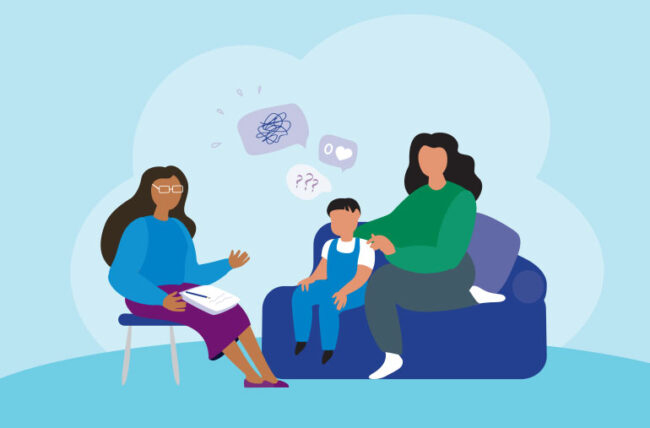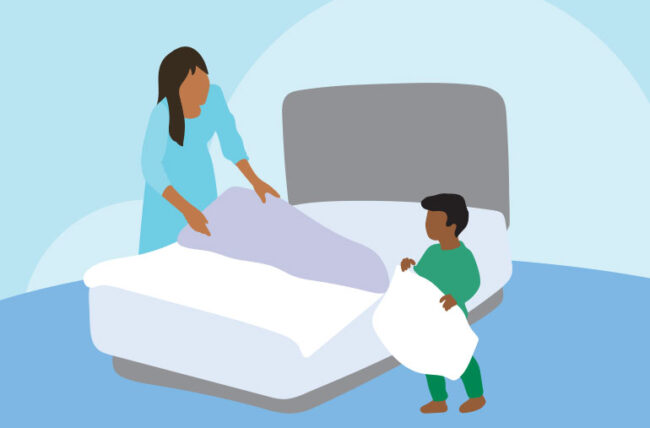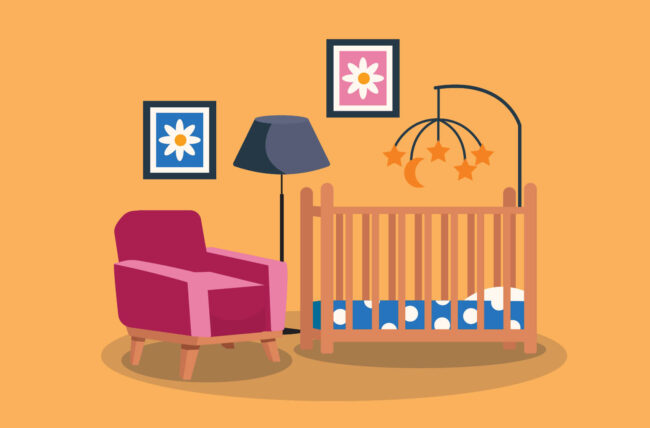You want the best for your children. It’s a fact. When your child struggles to concentrate at school, or withdraws from friends or their once favorite activities, it’s important to find the cause.
We’re parents. Not mind-readers. We are not trained healthcare professionals who can help children who struggle with mental health.
You decide that it’s the right time to get your child into therapy.
What’s your part in this? You know as a parent that there are boundaries you do not cross. When to calm down an argument with your child and when to leave it to them to resolve it themselves. When to be firm about bedtime. When to be strict and when to relax.
You may be wondering what to expect if children’s therapy for the first time. How can you support your child without hovering over their therapy appointments?
We spoke with Gerard Banez PhD , a pediatric psychologist, to get his advice for parents and caregivers during their child’s therapy.
Why mental health is important for your child
You’re doing your child a favor by seeking mental health treatment.
People with good mental health are happier. They are more successful. “They’re better able to deal with stress and their problems,” says Dr. Banez. Good mental health is essential to a healthy life. It also improves the quality of our lives. “Good mental health for kids will help them reach their full potential.”
You’re not alone in deciding to start therapy with your child. The U.S. Centers for Disease Control and Prevention shows the prevalence of certain mental disorders. Children aged 3-17 in the United States:
- ADHD is diagnosed in 9.8% of cases.
- anxiety affects 9.4% of people.
- 8.9% of people have behavioral problems.
- depression is diagnosed in 4.4% of people.
Do’s and Don’ts
Do: Be a part of the team
Your role in your child’s therapy journey depends on several factors. These include your child’s age, their reason for therapy, and the type of therapy that they are undergoing. In almost all cases, Dr. Banez believes that parents should expect to be involved.
If you are in the loop, Dr. Banez says that you can encourage healthy habits between appointments. “Good therapy with children must be collaborative.”
This could mean a briefing before or after the appointment of your child, a telephone call to check in between appointments, or even attending some sessions with your child. You should be able to discuss with your provider any changes or progress that has occurred since the last visit.
You can expect to be involved more in the appointments of younger children.
Dr. Banez explains, “If I am working with a child in preschool or kindergarten, I will probably spend just as much time as I would with the child. I can help the parent develop strategies that help the child to help himself.”
If there is a conflict between parent and child, then you should expect to spend more therapy time with your child. Parent-child sessions help you to better understand each other, establish boundaries and strengthen the relationship.
Follow the advice of your therapist. Join them if they invite you. You can trust them to tell you what you need to learn if they ask you to sit out.
Do your research
When looking for a provider to work with, Dr. Banez recommends starting by asking friends, family, or your child’s teacher. Referrals from your child’s pediatrician are also a great resource. You may be able identify a provider that specializes in certain treatments based on evidence or has experience with certain age groups.
Dr. Banez says that for some children with mental health problems, talking to a counselor can make a big difference. But depending on the situation, we may have a specific therapy that works. You’ll want your child to receive care from providers who specialize in that type of care.
Child psychologists can use many therapeutic approaches to help your child.
- Behavioral therapy is a form of psychotherapy.
- Play therapy for children.
- Cognitive behavior therapy (CBT).
- Dialectical Behavioral Therapy (DBT).
- Music or Art Therapy.
- Interaction between parent and child therapy.
Do not spring therapy on your child
Dr. Banez said that some parents find it difficult to discuss therapy with their children. Some parents worry that their children will think they have done something wrong. Or they will not agree that they require help. You may be hesitant about how to begin the conversation.
Some people avoid it and tell their children they are going to the doctor on their way for their first therapy appointment. Dr. Banez does not recommend that you keep therapy from your child if they are old enough to understand. To start, it’s best to have an honest conversation between you and your child so that they understand what is happening.
He recommends explaining to your child the things you notice and how you think therapy can be helpful. Encouragement and understanding are key.
Dr. Banez continues. It’s better if you mention the issue you’re experiencing, even though it can be difficult.
Do: Establish a rapport with your therapist
It is essential to develop a rapport with your therapist. When it comes to children’s therapy a good fit between the provider, child, and parent is essential.
You want to feel comfortable with the therapist of your child so you can be confident that they will tell you everything you need to. “Your child should feel confident that their therapist will not share more information than necessary, while also being able to speak freely,” says Dr. Banez.
Parents and caregivers should help set goals for the child’s therapy at the start of the session. This will ensure that they are on the same page. Share with your therapist what you want to see happen in terms of behavior or attitude.
It is possible to understand the direction of therapy without having to listen to every private conversation.
Do not: overstep or meddle
We like to believe that we know what our children want. It can be hard to feel left out of certain discussions.
Dr. Banez understands that well-meaning parents may sometimes want to get too involved in their child’s therapy. This can actually derail the therapy process.
The child must feel that the therapy is theirs. “They have to feel that this is their therapy, and not just because we are doing it to force them,” says Dr. Banez.
You can ask your child how their session went. You can ask your child if there is anything I can do to help them right now. Remember, if they refuse, it’s not an excuse to bombard them with questions or text the therapist to demand all the details. Trust the process.
Imagine the day your child began school. Although you weren’t in the class every day, you likely got used to a certain level of communication with the teachers. You should feel comfortable that your child is well cared for and making progress.
The relationship between a child and their therapist can be similar in some respects. You won’t always know what happens in therapy. It’s okay. You can still expect to be involved in your child’s care to encourage progress.






















